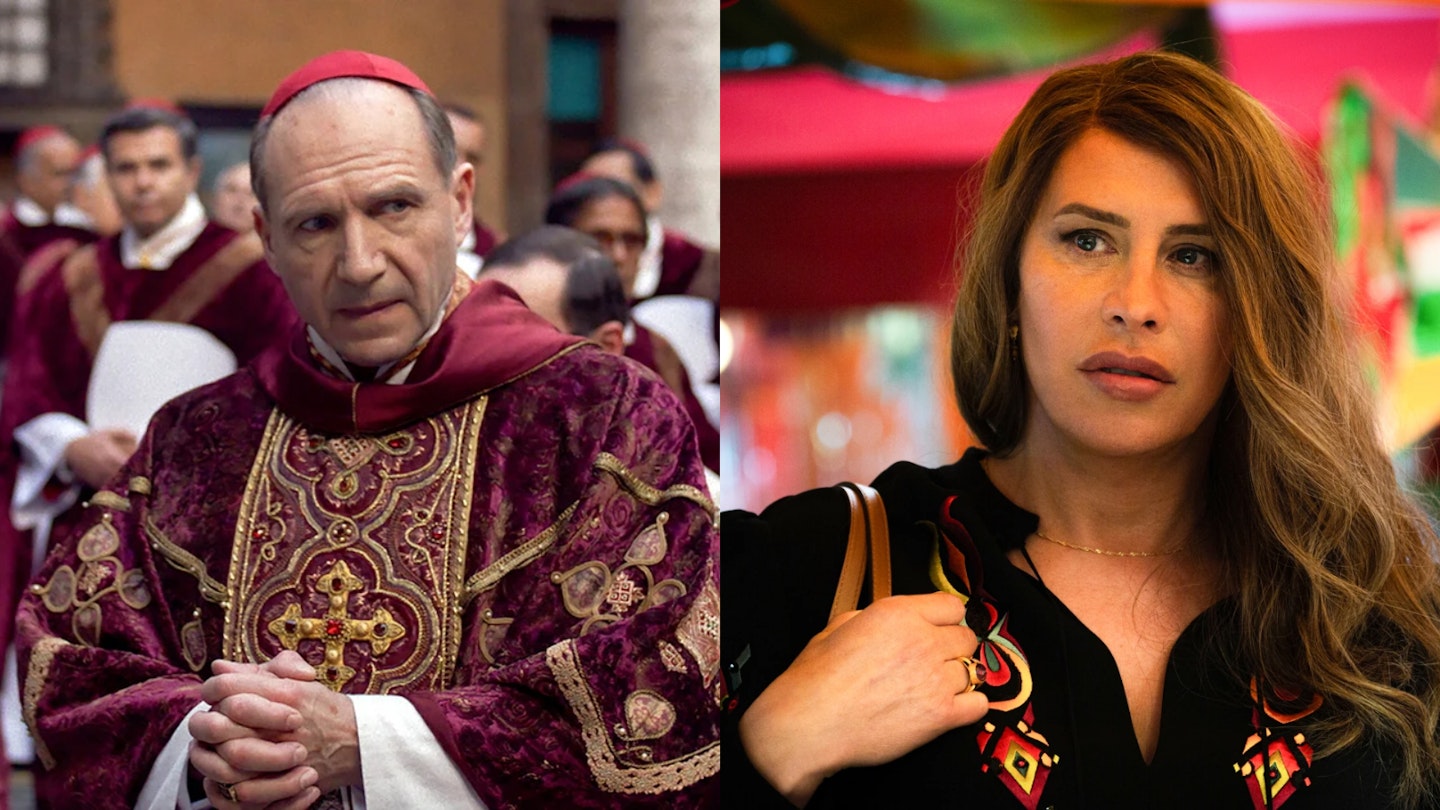Here is an unusual film from a restless mind. French filmmaker Jacques Audiard’s eclectic career has already seen a gritty prison drama (A Prophet), a comedy Western (The Sisters Brothers) and a romantic drama about orcas (Rust And Bone). His latest, Emilia Pérez, is part drug-cartel gangland thriller, part trans coming-of-age drama, part grand melodrama, and part opera libretto musical. It’s nothing if not unique.

Zoe Saldaña stars as an exhausted, hard-working lawyer in Mexico City, too busy to have a life of her own. Then one day she is kidnapped on the streets by machine-gun-wielding gangsters and bustled into a van. But the kidnapping is not a death sentence or a hostage situation: instead, it’s an unlikely (and compulsory) job offer. She is to organise and oversee the transition of a fearsome cartel leader (Karla Sofía Gascón), who wishes to fake her own death and begin a new life as a woman.
This would be a wild enough story on its own — tackling issues like gender, wealth inequality, and Mexico’s many thousands of ‘disappearances’ — were it not for the fact that its characters also regularly spontaneously break into song. It’s rare to see an original musical on the screen, and kudos to French singer Camille and her partner Clément Ducol for writing truly original songs, staged with verve and energy by Audiard, and attacked with gusto by the cast.
For better and for worse, you won’t see anything else like it this year.
It’s an impressive cast, too. Saldaña has been largely blue (Avatar) or green (Marvel) for the past decade. It’s a treat to see her in her most human role in years. She’s excellent, if slightly forgotten about during the middle of the film. Selena Gomez is also good value as the ex-wife of the cartel leader, even if pop fans might be disappointed at the underuse of her musical talents.
But it’s the relatively unknown Karla Sofía Gascón who is the biggest revelation, as the title character. Hers is an extraordinary performance, layered and textured, tinged with both sadness and menace. Gascón walks a complicated line between the liberation of Emilia’s new life and the guilt of her old one, and does it all with remarkable poise and grace.
It’s a shame, given this transformative turn and the rare leading-role screentime afforded to her, that Audiard’s script and perspective too often indulge in some of the laziest tropes of trans stories from cis writers. Characters misgender and deadname Emilia; Emilia herself suggests at one point she is “half a woman”; there is greater focus on her physical surgery over any internal journey. One song where a doctor merrily sings about penises and vaginas feels clunky and inconsiderate, too. And it all builds to a gun-toting overkill of a finale that undermines what came before it. Still, for better and for worse, you won’t see anything else like it this year.





